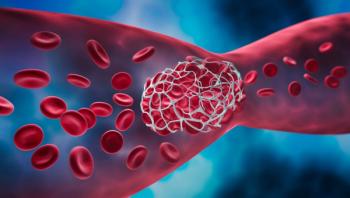
FDA Approves Altuviiio, Weekly Factor VIII Therapy for Hemophilia A
The new factor VIII product is part of a surge of research and drug development for hemophilia.
The FDA has approved a new factor VIII product with a much longer half-life than other factor VIII products. Results from a phase 3 trial recently reported in the New England Journal of Medicine showed that weekly intravenous infusions of the new product reduced bleeding and improved scores on questionnaires that measure quality of life and pain. For patients, the new factor VIII product might mean getting factor VIII infusions weekly instead of two or three times a week.
Sanofi, a French pharmaceutical company, and Sobi, a Swedish company that specializes in developing treatments for rare diseases, issued press releases on Feb. 23 announcing the FDA approval of the product, which is being marketed in the U.S. under the brand name Altuviiio.
The Sanofi press release says the generic name is now antihemophilic factor (recombinant), Fc-VWF-XTEN fusion protein-ehtl, but the New England Journal of Medicine study and others refer to it as efanesoctocog alfa.
The company declined to put a dollar figure on the annual price, saying that it was weight-based dosing regimen, so costs per course of treatment will vary by patient.
Maryland’s Prescription Drug Affordability Board issued a
In the email, Schaffnit cited a figure of 6 out of 10 hemophilia A patients being open to, or likely to, switch treatments within the next two years.
“We believe that the data supporting Altuviiio as a truly differentiating treatment option for hemophilia A patients by delivering high sustained factor activity levels in the normal to near-normal range (over 40%) for most of the week," he said in the email.
Hemophilia is characterized by increased tendency to bleed due to inherited deficiencies in clotting factors. About three-quarters of cases are the hemophilia A variety, which is caused by a deficiency factor VIII. Most of the remaining cases are hemophilia, which is caused by deficiency factor IX. Hemophilia is an X-linked disease, so it mainly affects males. There’s uncertainty about the prevalence, but by some counts, there are 1.2 million people in world with hemophilia and between 30,000 and 33,000 in the United States.
Although hemophilia is rare, it has attracted a flurry of research and drug development recently, resulting in new, FDA-approved treatments, such as Altuviiio and
“Another Victory for Patients with Hemophilia,” was the headline on the editorial accompanying the Altuviiio study results reported in the New England Journal of Medicine.
The rush of research and drug development is partly a reflection of the fierce competition among drug manufacturer for a share of the market for hemophiia drugs. Although the number of patients is relatiely small, the market is valuable because the drugs have high prices and treatment lasts a lifetime. A study published in JAMA Network Open in 2021 found that total Medicaid spending on hemophilia drugs had tripled from 2005 to 2019, going from $521 million to $1.57 billion.
“Sanofi and partner Sobi are coming back to the hemophilia A market with a vengeance after Roche’s Hemlibra ate up sales of their aging Eloctate,” was the first sentence of FiercePharma’s article on Feb. 23 on the FDA’s approval of Altuviiio.
The Sanofi and Sobi press releases said the FDA’s approval was based on the results of the XTEND-1 trial — which the companies — that were published in the New England Journal of Medicine. The trial included 159 patients with severe hemophilia A, 133 of whom received Altuviiio on a weekly basis for a year and 26 who received it “on-demand” for 26 weeks and then on weekly basis for the next 26 weeks.
The primary endpoint was the mean annualized bleeding rate among the patients who received the weekly treatments for year. The results showed that a mean bleeding rate was .71 and that 65% of the patients treated weekly had no bleeding episodes.
The most side effect was headache, which affected 32 of the 159 patients, or 20%.
This story was updated on Friday, Feb. 24.
Newsletter
Get the latest industry news, event updates, and more from Managed healthcare Executive.























